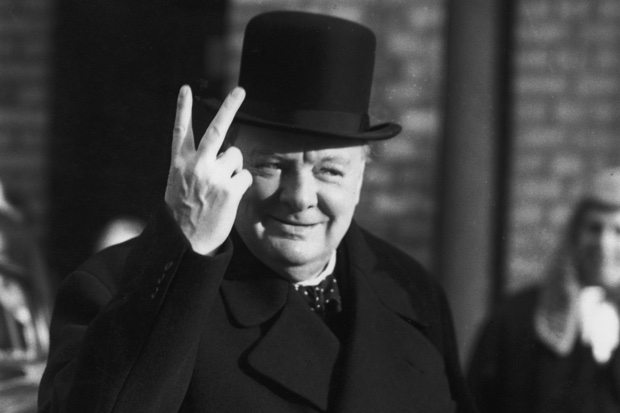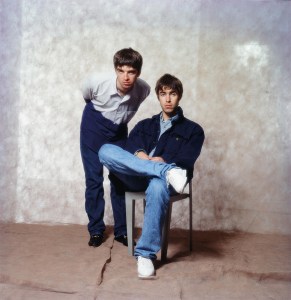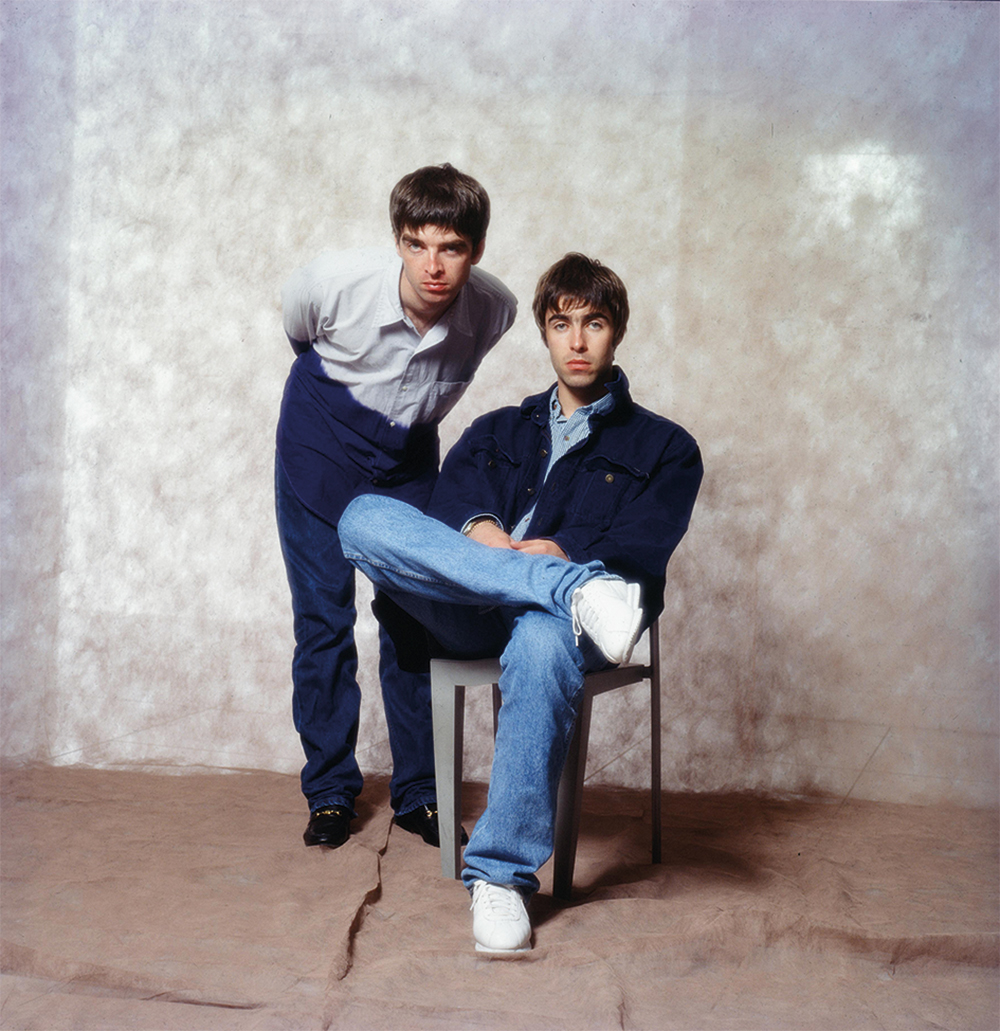Gary Oldman has joined a long list of actors who have portrayed Winston Churchill — no fewer than 35 of them in movies and 28 on television. He is one of the best three. ‘I knew I didn’t look like him,’ Oldman has said. ‘I thought that with some work I could approximate the voice. The challenge in part was the physicality, because you’re playing someone whose silhouette is so iconic.’
We all have our own mind’s-eye view of what Churchill should look and sound like, and his personality was so strong and sui generis that it is almost impossible for an actor to impose himself on the role. He is therefore almost always left with either mere impersonation or caricature. Oldman avoided this in Darkest Hour through research. ‘I went to the newsreel,’ he says, ‘and what I discovered was a man who had this very athletic tread. He would skip around at 65 like a 30-year-old, he had a sparkle, the eyes were alive, he had a very sort of cherubic grin.’
This is an insight that a number of actors who play Churchill — who came to power in 1940 aged 65 — have missed, and who thus play him as a man in late middle age. Sir Jock Colville, Churchill’s wartime private secretary, who was 41 years younger than him, wrote of how exhausting it was to keep up with the Prime Minister as he bounded up staircases, climbed bombsites and marched quickly down corridors. Oldman catches this. Others have played what Oldman calls ‘this sort of rather depressed grumpy man with a cigar’, but he wanted to ‘give him a bit of a twinkle in the eye’.
Churchill was depicted on the silver screen half a decade before he even became prime minister. The first time was in Royal Cavalcade (1935), when he was played neutrally in the movie made to celebrate King George V’s silver jubilee. The next was in Goebbels’s propaganda film Ohm Krüger (1941), about the British invention of concentration camps in the Boer War, where he of course is evil personified. Scarcely less believable were the four Soviet propaganda movies of the late 1940s — that is, after Churchill’s Iron Curtain speech that denounced Stalinism — in which Viktor Stanitsyn played Churchill as a scheming, grasping imperialist. There was an American movie, Mission to Moscow (1943), made at President Roosevelt’s request, which was naturally far kinder, but not really any more useful as an insight into Churchill.
After two movies in which Churchill appeared in cameo roles, played by Patrick Wymark and Jimmy Sangster, Simon Ward played the eponymous Young Winston in the 1972 film based on Churchill’s autobiography My Early Life. Written and produced by the genius Carl Foreman (High Noon, Guns of Navarone) and directed by Richard Attenborough, it was sublime. (I saw it recently yet again on the big screen, and it still is.) Ward captured Churchill’s courage and adventurousness, but also his occasional youthful bumptiousness.
Although Warren Clarke played a creditable Churchill in the seven-part TV series Jennie (1974) — in which Ronald Pickup, who is a convincing Neville Chamberlain in Darkest Hour, played Lord Randolph Churchill, — the next series overshadowed it. Richard Burton was perhaps too handsome to play Churchill in the The Gathering Storm (1974), but the script was historically accurate, whereas his off-camera remarks about despising Churchill for what he had supposedly done to the Welsh miners were not. Burton had a weird love-hate relationship with Churchill — other statements he made were admiring — but fortunately he stuck to the well-crafted script. The advantage that the TV biopics of the 1970s had over today’s knocking, sneering revisionist movies — which Darkest Hour emphatically is not — was that there were many people still alive in 1974 who knew and worked with Churchill. They could pour scorn on inaccuracies, as could audiences.
Still the best depiction of Churchill on a screen is in the eight-part TV series The Wilderness Years (1981), in which Robert Hardy inhabited the part of Churchill to such a degree that it affected everything else he did to a greater or lesser extent. (Can one see something of Churchill in Hardy’s depiction of the Minister of Magic in Harry Potter?) Hardy’s profound reading about Churchill, and friendship with Sir Martin Gilbert, Churchill’s biographer, helped make the series the success it was, and set the standard for everything that followed. It also allowed Hardy to reprise Churchill in War and Remembrance (1988), Bomber Harris (1989) and The Sittaford Mystery (2006).
Other very good Churchills have been Albert Finney in The Gathering Storm (2002), which rightly picked up a Golden Globe and Emmy, and Brendan Gleeson in Into the Storm (2009). Just as things looked good for Churchill on screen, however, a slew of frankly ridiculous revisionist films and TV shows were released, which, with the wartime generation then dead or dying, showed a shocking disregard for historical fact, while still posing as that self-contradictory, want-it-both-ways beast, the ‘docudrama’.
In The Crown (2016), the six-foot-four John Lithgow stoops to play a semi-senile Churchill (who was five-foot-six and certainly not senile), who deliberately murders 12,000 Londoners by not adopting green anti-global warming measures to defeat the London fog in 1952. He is also portrayed lying to the Queen about his stroke in 1953, whereas she was one of the first to be told about it. Similarly, Michael Gambon’s portrayal in Churchill’s Secret (2016) was ruined by unhistorical twaddle. I walked out of Quentin Tarantino’s lamentable Inglourious Basterds (2009) so I can’t report on Rod Tayor’s role as Churchill.
Easily the worst Churchill movie ever made was Churchill (2017), in which Brian Cox played a prime minister desperate to see D-Day fail. (Yes, you read that correctly.) I counted 120 historical inaccuracies in those two hours of my life I’ll never get back. Off-camera Cox spouted a series of ludicrous views about Churchill — such as that he wanted to invade Germany over the Alps — which showed that he had swallowed the views of the scriptwriter, Alex von Tunzelman, rather than doing his own research into the truth about Churchill.
Gary Oldman, by total contrast, has, through prosthetics, thoughtfulness and superb acting, caught Churchill brilliantly. He acknowledges our preconceptions about Churchill, and mildly co-opts them with charm and acuity. The supporting cast — especially Kristin Scott Thomas as Clementine and Sam West as Anthony Eden — are excellent too. Although there have been very many other creditable Churchills — David Ryall, Mel Smith, Timothy Spall, David Calder and Bob Hoskins among them — Gary Oldman now joins Robert Hardy and Simon Ward in the triumvirate of the greats.
Darkest Hour is in cinemas now.

























